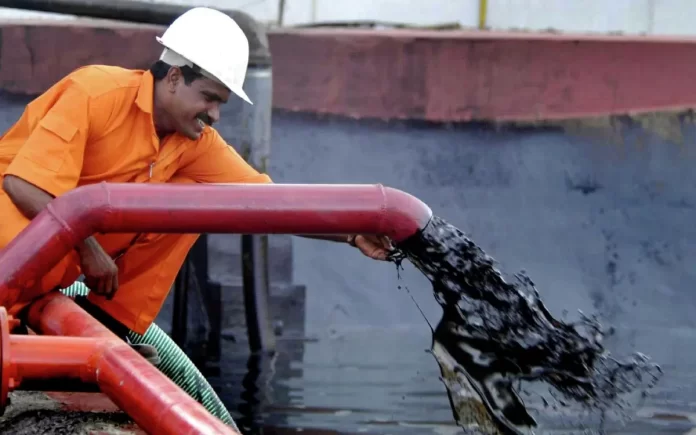London: India’s reliance on Russian crude oil remained steadfast in March, with imports surging by 7 percent compared to the previous month, according to data from energy cargo tracker Vortexa. With India receiving 1.36 million barrels of crude oil per day from Russia, the country continued to outpace other major suppliers such as Iraq and Saudi Arabia.
The total import of crude oil by India rose to 4.89 million barrels per day in March, up from 4.41 million barrels per day in February, as reported by Vortexa. Despite hovering around $85 per barrel, crude oil prices did not breach the $90-per-barrel mark during this period.
This sustained high level of imports from Russia comes despite US sanctions imposed on one of Russia’s leading tanker groups in late February. The sanctions targeted Sovcomflot, a major Moscow-based shipper, for allegedly violating price caps on Russian exports. Despite these sanctions, India’s reliance on Russian oil remained strong, with sour-grade oil from the Urals constituting a significant portion of imports, alongside other Russian oil grades like Varandey, Siberian Light, and Sokol.
Conversely, India saw a surge in crude oil imports from Iraq, which supplied 1.09 million barrels per day in March compared to 76,000 barrels per day in the previous month. However, imports from Saudi Arabia experienced a decline, standing at over 76,000 barrels per day in March, down from 82,000 barrels per day in February.
India’s increased dependence on Russian oil can be attributed to geopolitical tensions between Russia and Ukraine since 2022. Despite pressure from Western nations, India has continued to procure oil from Russia, buoyed by Moscow’s discounted offerings and India’s substantial demand for the commodity amid limited domestic production.
Government officials in India argue that the country’s continued purchases from Russia have played a crucial role in stabilizing global crude prices. However, this trend has led to a decline in imports from traditional Middle Eastern suppliers like Saudi Arabia and Iraq, exacerbated by production cuts imposed by the Organization of the Petroleum Exporting Countries (OPEC) and its allies, collectively known as OPEC+.
With OPEC+ extending voluntary oil supply cuts into the second quarter of 2024, India’s energy landscape continues to evolve, with Russian crude playing an increasingly pivotal role in meeting the nation’s energy needs.



